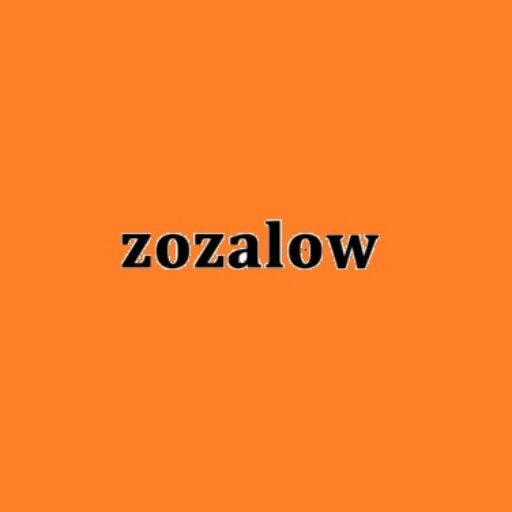Why is Tableau important for data analyst?
Tableau is important for data analysts for several reasons, as it provides powerful tools for data visualization, exploration, and analysis. Here are some key reasons why Tableau is considered essential for data analysts:
Ease of Use
Tableau has a user-friendly interface that allows data analysts to create interactive and visually appealing dashboards without the need for extensive coding or technical expertise. The process of analyzing data is expedited by this ease of use.
Data Visualization Capabilities
Tableau is renowned for its robust data visualization capabilities. It allows data analysts to create a wide range of charts, graphs, and interactive visualizations to represent complex datasets in a comprehensible and actionable format.
Rapid Prototyping
Data analysts can quickly prototype and iterate on visualizations, enabling them to explore different perspectives and insights within the data. This agility is crucial for adapting to changing business requirements and exploring data-driven hypotheses.
Interactive Dashboards
Tableau enables the creation of interactive dashboards where users can explore and interact with the data dynamically. This interactivity enhances the user experience and allows for on-the-fly analysis.
Data Blending and Integration
Tableau can connect to various data sources, including databases, spreadsheets, and cloud services. It supports data blending and integration, allowing analysts to combine data from multiple sources for a comprehensive analysis.
Real-Time Data Analysis
Tableau supports real-time data analysis, enabling analysts to work with live data and make decisions based on the most up-to-date information. This is particularly important in dynamic business environments.
Advanced Analytics Integration
Tableau integrates with advanced analytics tools and languages such as R and Python. This allows data analysts to incorporate statistical models and machine learning algorithms into their analyses directly within Tableau.
Cross-Database Joins
Tableau supports cross-database joins, allowing analysts to bring together data from different databases seamlessly. This capability is essential when dealing with complex datasets distributed across multiple systems.
Scalability
Tableau is scalable, capable of handling both small and large datasets. This scalability makes it suitable for organizations with diverse data needs, from small businesses to large enterprises.
Data Exploration and Discovery
Tableau facilitates data exploration and discovery by providing a range of tools for filtering, sorting, and drilling down into data. Analysts can uncover patterns, trends, and outliers to derive valuable insights.
Sharing and Collaboration
Tableau allows analysts to share their findings easily through interactive dashboards and reports. The platform supports collaboration and discussion around data insights, fostering a data-driven culture within organizations.
Mobile Accessibility
Tableau provides mobile accessibility, allowing analysts to access and interact with their dashboards on various devices. This flexibility is crucial for professionals who need to stay informed while on the go.
Community and Resources
Tableau has a vibrant community and extensive resources, including forums, tutorials, and documentation. Data analysts can leverage these resources to enhance their skills, troubleshoot issues, and stay updated on the latest features.
In summary, Tableau training in Chandigarh Its empowers data analysts to turn raw data into actionable insights through intuitive visualization, interactivity, and advanced analysis capabilities. Its versatility and ease of use make it a valuable tool for professionals involved in data analysis, reporting, and decision-making processes.
Which certification is best for Tableau?
As of my last knowledge update in January 2022, Tableau offers several certifications catering to different skill levels and roles within the Tableau ecosystem. The best Tableau certification for you depends on your experience, role, and career goals. Here are some prominent Tableau certifications:
Tableau Desktop Specialist
This entry-level certification is suitable for individuals who have foundational knowledge of Tableau Desktop. It covers essential skills such as connecting to and preparing data, exploring and analyzing data, and sharing insights.
Tableau Desktop Certified Associate
The Certified Associate certification is for individuals with a deeper understanding of Tableau Desktop functionality. It covers topics such as organizing and simplifying data, field and chart types, mapping, and calculations.
Tableau Desktop Certified Professional
The Certified Professional certification is designed for individuals with advanced proficiency in Tableau Desktop. It tests skills in advanced calculations, dashboard actions, advanced chart types, and complex data scenarios.
Tableau Server Certified Associate
This certification is for individuals responsible for the deployment and maintenance of Tableau Server. It covers topics such as installation, configuration, content administration, and data connections.
Tableau Server Certified Professional
The Certified Professional certification for Tableau Server is for individuals with advanced knowledge and experience in managing Tableau Server at an enterprise level. It covers topics such as scalability, security, governance, and performance optimization.
Tableau Data Management Certified Associate
This certification is for individuals involved in data management and governance using Tableau. It covers topics such as data connections, preparing data, exploring and analyzing data, and sharing insights.
Tableau Data Management Certified Professional
The Certified Professional certification in data management is for individuals with advanced proficiency in implementing Tableau’s data management features. It covers topics such as data connections, data preparation, and managing metadata.
When choosing a Tableau certification, consider your current level of experience with Tableau, your role (e.g., analyst, developer, administrator), and your career goals. Starting with the Desktop Specialist or Desktop Certified Associate certification is typically recommended for those new to Tableau, while the Server certifications are suitable for administrators.
Keep in mind that certification names and details may evolve, so it’s advisable to check the official Tableau course in Chandigarh website for the latest information on certifications, including any new certifications introduced after my last update in January 2022. Additionally, you may want to explore the Tableau Blueprint and the Tableau Public platform for learning resources and community support.
Read more article:- zozalow.
